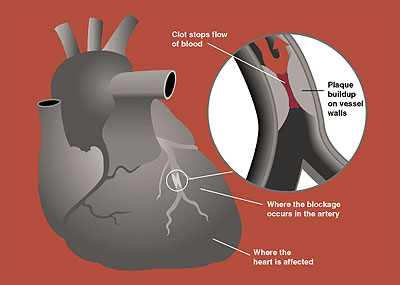Shift Work Linked To Increased Risk Of Heart Attacks And Stroke
Whilst night-shift workers appear to be more at risk from breast cancer, findings from a new investigative study by the BMJ, adds even further health risks into the controversy over the way in which employers utilise shift patterns which take no account of people’s private and home life and the need for sensible work breaks.
Shift-work is increasingly being used by employers and administered by computer programmes being promoted to employers by HR companies as providing maximum profits at minimum costs as a result of being able to utilise minimum staffing levels.
 As the costs to the employer are being minimised, the costs to those having to work shifts which take no account of the fact that they are human beings and not mechanical ‘work units’, is being paid in a higher risks of stroke and heart attacks.
As the costs to the employer are being minimised, the costs to those having to work shifts which take no account of the fact that they are human beings and not mechanical ‘work units’, is being paid in a higher risks of stroke and heart attacks.
The new report, based on a systematic review and meta-analysis, was published online July 26 in the British Medical Journal. Researchers recommend that employers institute health screening programs in the workplace, if at all possible. They should give their employees breaks where they can relax and de-stress, and should rationalize their shift scheduling systems "so that they are more ergonomically designed and more aligned with the human body clock or circadian rhythm".
Whilst the full study report can be read on the BMJ website, this is an extract of the findings and conclusions of the study:
Our findings have several implications. The increased risk of vascular disease apparent in shift workers, regardless of its explanation, suggests that people who do shift work should be vigilant about risk factor modification. Screening programmes for modifiable risk factors in shift workers have yielded substantial burdens of treatable risk factors, including dyslipidaemia, smoking, glucose intolerance, and hypertension.
Shift workers should be educated about cardiovascular symptoms in an effort to forestall or avert the earliest clinical manifestations of disease. Evidence also exists in the literature to suggest that modification and rationalisation of shift schedules may yield dividends in terms of healthier, more productive workers; however, the long term effects of these alterations on vascular outcomes remain unknown. More work is needed to identify the most vulnerable subsets of shift workers and the effects of shift modifying strategies on overall vascular health.
What is already known on this topic
- Shift work is associated with an increased risk of hypertension, metabolic syndrome, dyslipidaemia, and diabetes mellitus
- Disruption of circadian rhythm may predispose shift workers to vascular events; however, no organised systematic synthesis of all types of vascular events is available
What this study adds
- Shift work is associated with myocardial infarction, coronary events, and ischaemic stroke; the relative risks are modest, but population attributable risks are high
- These findings seem to be robust and insensitive to publication bias, quality of study, and socioeconomic status
- Conversely, shift work is not associated with increased rates of mortality (whether vascular cause specific or overall)
Read the full study here British Medical Journal
Source: European Agency for Health and Safety at Work / BMJ


 As the costs to the employer are being minimised, the costs to those having to work shifts which take no account of the fact that they are human beings and not mechanical ‘work units’, is being paid in a higher risks of stroke and heart attacks.
As the costs to the employer are being minimised, the costs to those having to work shifts which take no account of the fact that they are human beings and not mechanical ‘work units’, is being paid in a higher risks of stroke and heart attacks.